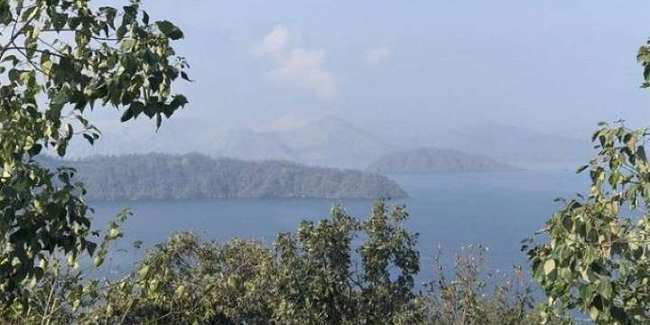As of 8:00 a.m. of January 29, 2020, the Philippine Institute of Volcanology and Seismology (PHIVOLCS) posted a Taal Volcano Bulletin.

According to DOST-PHIVOLCS, the activity in the Taal Volcano’s main crater in the past 24 hours has been characterized by “moderate to voluminous emission” of white to dirty white steam-laden plumes 600 – 800 meters high and dispersed northeast of its main crater.
Based on the reports from the Philippine Seismic Network, they have recorded a total of 760 volcanic earthquakes in the Taal region since 1:00 p.m. of January 12. One hundred seventy-seven (177) of these volcanic earthquakes were registered at magnitudes M1.2 to M4.1 and were felt at Intensity I to Intensity V.
Since 5:00 a.m. on January 28, 2020 until 5:00 a.m. on January 29, 2020, the Philippine Seismic Network recorded 3 volcanic earthquakes that were registered at magnitudes M1.7-M2.1 with one felt event at Intensity III. These earthquakes may signify magmatic activity beneath the Taal edifice, in which this may lead to further eruptive activity.
In addition, the Taal Volcano Network recorded 123 volcanic earthquakes for the past 24 hours, which includes 3 low-frequency earthquakes. According to PHIVOLCS, the Taal Volcano Network can record small earthquakes that were undetectable by the Philippine Seismic Network.
The emission of sulfur dioxide was measured at an average of 64 tonnes per day.
The alert Level 3 still continued in effect over Taal Volcano, which means, according to DOST-PHIVOLCS, sudden steam-driven and even weak phreatomagmatic explosions, volcanic earthquakes, ashfall, and lethal volcanic gas expulsions may still occur and threaten areas within Taal Volcano Island as well as its nearby lakeshores.
Furthermore, the Philippine Institute of Volcanology and Seismology strongly recommended that residents cannot enter inside the Taal Volcano Island as well as areas over Taal Lake and communities west of the island within a 7-km radius from its main crater.
The DOST-PHIVOLCS will continually monitor the eruption.
READ ALSO | Michael Jordan Mourns Death Of Kobe Bryant
